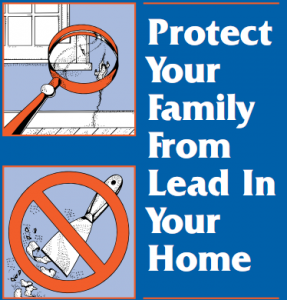Posted by Teresa on February 3, 2012 under Landlord Tips | 
 When tenants don’t feel heard, and want to enforce their right as a group, they sometimes form a tenants’ association. Through a tenants’ association, they may feel they can better make their voices heard and improve their living situations.
When tenants don’t feel heard, and want to enforce their right as a group, they sometimes form a tenants’ association. Through a tenants’ association, they may feel they can better make their voices heard and improve their living situations.
If your tenants decided to form an association, how would you react? Would you be surprised? Should you be worried? Or would you be angry?
Tenants who wish to form an association may have common concerns, among them are:
- Repairs and maintenance
- Emergency repairs and loss of essentials such as heat, water, electricity or gas
- Inadequate heating
- Loss of utilities due to landlord non-payment
- Privacy violations
- Abusive behavior
- Rent increases and security deposit concerns
While the vast majority of landlords treat their tenants fairly and with respect, and take care of their properties (after all, they are investments), there are those who don’t, and who may respond more quickly when tenants exert a little pressure.
So, what can a good landlord do when tenants form an association?
- Don’t panic.
- Establish a line of communication with the leaders of the association.
- Show an interest in their concerns.
- Listen.
- Fix what’s wrong. If you can’t make necessary repairs right away, explain why and set a date when they will happen.
- Attend association meetings, if they allow you. (They don’t have to.)
- Allow the association to use common areas for their meetings, as long as you allow other groups to use them.
- Don’t discriminate against members of the association, and don’t offer incentives to new tenant to not join the association.
- Check your local and state laws regarding tenant associations. You may be subject to specific regulations.
While tenant associations may not be landlords’ favorite groups, they don’t have to instill fear. Talk to your tenants, take care of their legitimate concerns, and you can improve your relationship for the long run.
Protect your rental property and assets through tenant background checks. Proper tenant screening will ensure you are leasing to the best possible tenants.
Posted by Teresa on January 9, 2012 under Eviction | 
 The last thing most landlords and tenants want to face is an eviction. For landlords, it’s messy, time-consuming and can be costly. For tenants, eviction can hurt their chances of renting another home, and could even leave them homeless.
The last thing most landlords and tenants want to face is an eviction. For landlords, it’s messy, time-consuming and can be costly. For tenants, eviction can hurt their chances of renting another home, and could even leave them homeless.
There are ways to prevent a landlord-tenant relationship from ending in eviction, including proper tenant screening and conducting thorough tenant credit checks. But even good tenants lose jobs or have unexpected medical bills that can lead to difficulty paying rent. And when they stop paying rent, and won’t move on their own, eviction is the landlord’s legal recourse.
Depending on the state you live in, landlords are typically required to follow a strict protocol and process of notifying a tenant of impending eviction. Whether or not the tenant decides to fight the notice will determine whether the process goes quickly or drags out. The latter will add time and legal fees to the landlord’s case.
Other legal fees a landlord typically encounters in an eviction case include unlawful detainer for each adult in the rental unit, judgment, garnishment and service fees.
If you win your case, you then must remove the tenant from the property. In most states, you cannot just throw a tenant’s belongings out on the sidewalk. Typically, local law enforcement serves a notice and gives the tenant several days to leave. If they don’t, they will be removed by law enforcement.
In a few states, landlords are allowed to dispose of property a tenant leaves behind, but in most places, you’ll need to store the tenant’s property and follow proper notification procedures. In New York and New Jersey, for example, a landlord must store an evicted tenant’s belongings for 30 days, resulting in additional costs that are rarely recovered.
Expenses for cleaning and repairs add to the losses experienced by the landlord, since any security deposit paid by the tenant has likely been offset by loss of rent and legal fees.
By properly pre-screening tenants, offering an iron-clad lease to qualified applicants, and requiring strict adherence to rent due dates, landlords can establish a business model that lessens the chances of eviction—and saves them significant money and time.
Posted by Teresa on January 6, 2012 under Landlord Tips | 
 The declining housing market created plenty of new landlords, some of whom may have never planned on owning rental property. Some are leasing a house they couldn’t sell, while others are taking advantage of low prices and investing in properties to rent. Still others are renting out floors or rooms in their own homes.
The declining housing market created plenty of new landlords, some of whom may have never planned on owning rental property. Some are leasing a house they couldn’t sell, while others are taking advantage of low prices and investing in properties to rent. Still others are renting out floors or rooms in their own homes.
One thing all landlords need is proper liability insurance coverage on their rental properties:
- If you’re renting a room or section of your own home, you will probably be okay with your existing homeowner’s insurance coverage.
- If you don’t live in the same house with your tenants, you’ll likely need a separate policy.
Why Do You Need Landlord Liability Insurance?
Imagine losing your savings over a lawsuit brought by a tenant because of an injury suffered on your property. Or if a neighbor’s child is bitten by your tenant’s dog on the sidewalk in front of your property. Even a visitor to your tenant’s unit could possible sue if he or she is injured on your property through no fault of yours.
Will your retirement fund be wiped out? What about your kids’ college funds? Could you lose your home, as well as your rental property? All of these assets could be at risk when you begin renting out a property you own without proper liability insurance.
Check with your insurance provider about your options. They may include:
- Basic coverage, for fire and vandalism.
- The next level of coverage will typically include acts of nature, such as windstorms.
- The top tier, an “open peril” policy, covers all perils, except those specifically named.
Some insurance companies offer special landlord insurance packages, which typically cover damages to your building and outbuildings, as well as your personal property stored on site. Some offer loss-of-rental-income and legal defense and court cost coverage.
If you’re a new landlord who hasn’t yet looked into insurance, your next call should be to your insurance agent!
Legal disclaimer:
The contents of this article are intended for general information purposes only, and should not be relied upon as a substitute for obtaining legal advice applicable to your situation.
Posted by Teresa on November 30, 2011 under Landlord Tips | 
 The biggest multi-family housing owners in the U.S. have been using a secret weapon to maximize rental revenue and minimize vacancy. For about the past ten years, the landlords of a collective one million rental apartments have been renewing leases and setting rents using powerful technology to manage revenue. The software applications are similar to those used by airlines and hotels to set ticket prices and room rates.
The biggest multi-family housing owners in the U.S. have been using a secret weapon to maximize rental revenue and minimize vacancy. For about the past ten years, the landlords of a collective one million rental apartments have been renewing leases and setting rents using powerful technology to manage revenue. The software applications are similar to those used by airlines and hotels to set ticket prices and room rates.
The software instantly analyzes competitor rents, the current rental market, seasonal trends, property history and other variables to calculate the highest feasible rent at a given time. The landlords can then offer the tenant or prospective tenant that rent. It may be a lower rate for a less-desirable unit, so the tenant can save money. It may mean an increase in rent for a renewing tenant, based on the going rate for their unit.
Some suggestions made by the software are surprising. One landlord began offering one-month leases when an analysis showed a demand for it. Leasing a $1,000 unit for a single month at $3,000 turned out to be good idea—that they would not have previously considered.
Other rental property owners say the software helps them become more conscious of their competitors and why they were losing leases. The number of variables considered is much more extensive than a human would think to include.
While it’s a given that the biggest landlords would utilize revenue management software, it appears to be gaining popularity with smaller rental property owners as well. Users say the software pays for itself within months, with 3 – 7% revenue increases from the start.
Posted by Teresa on November 16, 2011 under Landlord Tips, Tenant Screening & Background Checks | 
 If methamphetamine-manufacturing tenants in Cuyahoga Falls, Ohio get busted, they are expected to pay the costs of cleaning up their labs and disposing of the hazardous waste. If they cannot pay for cleanup after their labs are discovered, their landlords are now responsible, thanks to a new amendment to an existing law.
If methamphetamine-manufacturing tenants in Cuyahoga Falls, Ohio get busted, they are expected to pay the costs of cleaning up their labs and disposing of the hazardous waste. If they cannot pay for cleanup after their labs are discovered, their landlords are now responsible, thanks to a new amendment to an existing law.
Until recently, state and federal funds paid for dismantling and removing labs, but that money has come to an end. The local police chief estimated cleanup costs of $1,000 to $5,000 for each meth lab. From removing traces of chemical residue, to dismantling and moving meth-related paraphernalia, landlords are on the hook for everything.
While recognizing that the majority of landlords don’t knowingly lease to drug manufacturers or dealers, the city council that passed the new law stated that it’s simply a cost of doing business.
Some landlords have attended training sessions about meth labs, including lessons on how to identify a lab and what to do if they find one. Meth labs are quick to set up, and the process of manufacturing meth uses easily acquired chemicals.
The real problem for landlords with meth lab cleanup costs is that insurance generally will not reimburse the expense. Not dealing with the problem is not an option. The chemicals used to make meth are extremely dangerous, and even traces of residue pose numerous health hazards, including liver, kidney and neurological damage, and increased risk of cancer.
What Is Involved in Cleaning Up a Meth Lab?
- The entire rental unit must be cleaned
- All traces of chemicals must be removed.
- Walls and ceilings painted
- Carpeting removed,
- All air filters replaced
- Ventilation systems cleaned
- Sinks and plumbing should be replaced
As the landlords of Cuyahoga Falls are discovering, meth labs are not a big-city problem. They are everywhere. The best way to avoid renting to drug manufacturers is to conduct thorough background checks and tenant screening on every applicant. If there is a history of drug convictions or other criminal records, you have the right to turn down the applicant.
Posted by Teresa on November 4, 2011 under Landlord Tips | 
 If you’re a landlord, it’s a good idea to try to save energy and heating fuel in your rental properties—especially since heating bills are predicted to hit record highs this winter. And even if your tenants pay their own heat bills, isn’t it in your best interest, as well as theirs, to save them money if you can? When things are tight, as in this continued tough economy, helping tenants save money can keep you rent payments coming in steadily.
If you’re a landlord, it’s a good idea to try to save energy and heating fuel in your rental properties—especially since heating bills are predicted to hit record highs this winter. And even if your tenants pay their own heat bills, isn’t it in your best interest, as well as theirs, to save them money if you can? When things are tight, as in this continued tough economy, helping tenants save money can keep you rent payments coming in steadily.
What are the best ways to save more on heating by saving energy?
- Tax credits: Federal tax credits of up to $500 for energy-efficient appliances, furnaces and insulation installation. The money comes right off your taxes, and helps pay for the initial investment. If gas water heaters are more than 12 years old, consider replacing them.
- Rebates: States and utility companies offer rebates on furnaces, energy-efficient appliances, and other fuel-saving investments. Furnaces over 15 years old can often be replaced with more efficient ENERGY STAR rated models.
- Adding insulation: Many older homes are insufficiently insulated. Check into adding new insulation on your rental properties. Consider increasing ceiling insulation too. It’s easy to wrap the hot water tank with jacket insulation—very effective, especially if it’s an older model.
- Lower the thermostat: 68 degrees during the day and 55 at night is comfortable for most people. Every degree lower in the 60 – 70 degree range saves up to 5% of heating cost.
- Replacing or cleaning furnace filters: Dirty filters increase energy use. Keep them clean by changing often. If you do the replacing yourself, you also have the chance to check on your property and tenants.
- Get out the caulk: seal leaks around windows, doors, and where pipes and electrical conduit enter your building. Check under bathroom and kitchen sinks, the basement and utility closets.
- Install storm windows: for single-pane windows, storms are super-efficient. Or replace old windows with double-panes.
- Encourage tenants to use cold water when washing clothes: it reduces energy use by 75%. And remind them to clean the lint trap on the dryer after every load.
Saving energy takes information, an investment and a commitment. But the rewards can be enormous—especially if everyone does their part. Landlords could qualify for rebates that pay for upgrades, so why not look into them?
Posted by Teresa on September 23, 2011 under Landlord Tips | 
 It seems like more people are getting into property management. The shift from a home-buying boom to a strong rental market could be one big reason. Have you seen the seminars popping up that claim to teach real estate agents how to manage property in one 3-hour session?
It seems like more people are getting into property management. The shift from a home-buying boom to a strong rental market could be one big reason. Have you seen the seminars popping up that claim to teach real estate agents how to manage property in one 3-hour session?
Property management takes a strong set of skills and expertise. Your property manager is supposed to enhance your business and keep you safe—not be another potential liability that can cause your business harm.
Here are three things to watch out for and consider if you’re planning on hiring a property manager:
- Avoid hiring a friend or family member. Business and friendship seldom mix successfully. If your friend who’s been selling houses just added property management to his list of services, do you really want to be his guinea pig? Does your cousin really have the guts to evict tenants and handle rent disputes? And are either of them educated about rental and tenant laws?
- Realize that you need to manage the property manager. It would be nice if your PM took care of your rental business so well that you didn’t have to do anything but count your money, but you will still need to follow up on expenses, repairs, rent collection and vacancies. A good PM will provide appropriate reports on a regular basis, but do your own follow-up just to be sure.
- Find a PM who really cares about your properties and your business. The higher cost of an effective property manager could be well worth it. Interview several to find one you who knows the local market, the local and state rental laws and who agrees with your management philosophy. Ask for and check references. Get examples of their reports. Check out their insurance and bonding status.
As the rental market heats up, more people will be adding property management to their list of services. Be picky and hire one who is knowledgeable and experienced.
Posted by Teresa on August 18, 2011 under Landlord and Tenant FAQs | 
 Q: Can a landlord prevent a tenant from breaking a lease with 60 days’ notice, due to trauma from a violent crime that occurred in the rental unit?
Q: Can a landlord prevent a tenant from breaking a lease with 60 days’ notice, due to trauma from a violent crime that occurred in the rental unit?
A: In some cases, and in some jurisdictions, the law would allow a lease to be broken without penalty. Usually, a tenant who signs a one-year lease cannot terminate it mid-term, even with a 60-day notice. In general, a landlord is not liable for unforeseen criminal acts of a third party against his or her tenants. If the tenant had reported issues regarding safety, such as inoperable door or window locks, or insufficient lighting, the tenant may have recourse, as the landlord could be considered in breach of the lease for failing to protect the tenants.
In a case like this, landlords could find themselves between a rock and a hard place, wanting to avoid any admission of liability by allowing a tenant out of a lease, while understanding why they would want to move.
Q: If I see that a tenant is demonstrating some hoarding tendencies, should I intervene?
A: Landlords have the right to expect a tenant will keep the rental property in good, clean and safe condition. Hoarding can be a safety hazard, particularly if flammable materials are kept in large quantities or emergency crews would have a difficult time navigating through the unit. Tenants who keep debris, garbage, empty boxes and cans, and stacks of newspapers in a rental unit are endangering themselves and other tenants.
Don’t ignore this situation. Keep the lines of communication open and respectfully and gently talk to the tenant about the situation. You may need to try contacting a family member (perhaps from the emergency contact listed on the lease application).
Q: My tenant damaged a wall and hardwood floor by carelessly leaving a window open during a rainstorm. I took the repair money out of their security deposit, and they replenished it. Now I want to terminate the lease to prevent this from happening again. Do I have that right?
A: Carelessness is not gross negligence. If the tenant is on a month-to-month lease, then you may terminate with notice, with no reason given. But if it’s a longer lease, this situation probably will not qualify as an allowable reason.
Legal disclaimer:
The contents of this article are intended for general information purposes only, and should not be relied upon as a substitute for obtaining legal advice applicable to your situation.
Posted by Teresa on August 12, 2011 under Landlord Paperwork and Forms | 
 If you’re a landlord who owns older rentals, you may be at risk for liability if you don’t properly disclose the possibility of lead-based paint. Lead-based paint was commonly used prior to 1978, when it was banned. If it cracks, peels or is scraped or sanded, it can still pose a health hazard, particularly to children who ingest paint chips or breathe the dust. Lead paint still exists in many older homes.
If you’re a landlord who owns older rentals, you may be at risk for liability if you don’t properly disclose the possibility of lead-based paint. Lead-based paint was commonly used prior to 1978, when it was banned. If it cracks, peels or is scraped or sanded, it can still pose a health hazard, particularly to children who ingest paint chips or breathe the dust. Lead paint still exists in many older homes.
The Residential Lead-Based paint Hazard Reduction Act, commonly known as Title X, was enacted in 1992. The Environmental Protection Agency regulates the act for all rental properties built before 1978.
Under Title X, landlords must disclose any known lead-based paint or hazards on the property to tenants before signing or renewing a lease or rental agreement. The tenants and landlord must sign an EPA-approved form to prove the landlord disclosed information about any known lead on the premises. The landlord must also provide tenants a brochure, “Protecting Your Family From Lead in Your Home,” supplied by the EPA or the state. The brochure is available online or you can request printed brochures from the National Lead Information Clearinghouse at 800-424-5323.
Property owners are not required to test for lead or remove it. And, certain properties are exempt from the lead disclosure requirement:
- Lofts, efficiencies and studio apartments
- Short-term vacation rentals of 200 days or less
- Single rooms rented in a residence
- A building certified as lead-free by an accredited lead inspector
- Housing designed for person with disabilities, unless children live there
- Retirement communities, unless children are expected to live there
- Housing built after January 1, 1978
Lead-based paint should not be removed unless proper precautions are taken. Even low levels in the bloodstream pose serious health risks to everyone, but especially children and pregnant women. Landlords should read the EPA brochure to become familiar with the dangers and regulations surrounding lead-based paint.
Posted by Teresa on July 29, 2011 under Landlord Tips | 
 Landlords are often asked to give references on their former tenants to other landlords. And if you’re a landlord, you’ve probably asked for plenty of tenant references of your fellow landlords. It’s an important part of screening tenants before you sign a lease.
Landlords are often asked to give references on their former tenants to other landlords. And if you’re a landlord, you’ve probably asked for plenty of tenant references of your fellow landlords. It’s an important part of screening tenants before you sign a lease.
You may be surprised that a tenant who has paid rent late or caused damage would ask you to provide a reference, but it happens all the time.
Here are a few tips for when you’ve been asked to provide a reference for a tenant you don’t particularly want to recommend to another landlord.
- Some landlords are completely straightforward with their fellow landlords, telling them honestly about all the tenant’s bad and good habits.
- Other landlords offer only answers to specific questions. If a particular topic isn’t brought up, they are not going to the one to do it.
- Still others will only say whether or not they would rent to the tenant again.
- Keep it professional: Keep your personal opinions out of the conversation. Offer only facts, and let the new landlord decide whether or not he or she will rent to your soon-to-be ex-tenant.
- Consider asking tenants to sign a release that authorizes you to share information with a new landlord. Let the tenant know that you will only offer information that can be backed up by documentation.
- In some areas, you might be subject to lawsuits for releasing negative information. If you need to know for sure where to draw the line, consult an attorney before you say anything.
- That said, you can most likely avoid trouble by being honest, providing only facts and no opinions, and knowing you can back up the facts with documentation.
For many landlords, just sticking to the “Would you rent to this person again?” question is the best way to go.
 When tenants don’t feel heard, and want to enforce their right as a group, they sometimes form a tenants’ association. Through a tenants’ association, they may feel they can better make their voices heard and improve their living situations.
When tenants don’t feel heard, and want to enforce their right as a group, they sometimes form a tenants’ association. Through a tenants’ association, they may feel they can better make their voices heard and improve their living situations.








